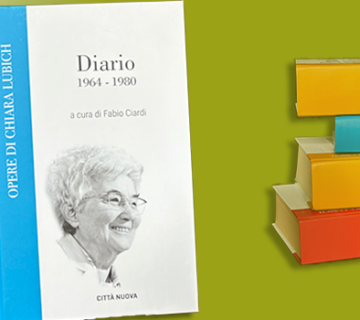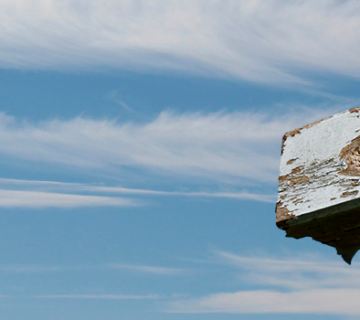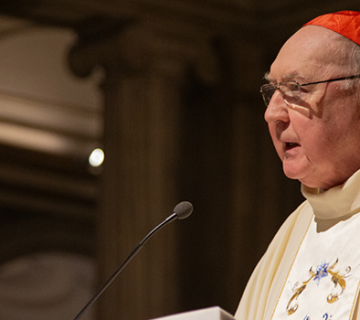 Spain has a long history. In 218 BC the Roman Empire set the stage for a cultural and territorial link between the Celtic and Iberian peoples who had already been settled there for centuries. The Basque people, however, who settled in the north-west of the country were not subjected to this influence. The Latin language evolved into Castilian – the official language – Catalan and Galician. Together with Basque these are the co-official languages of the country. In later centuries, Islam conquered most of the peninsula. The coexistence of Muslim, Christian and Jewish cultures created the necessaray conditions for the transmission of the scientific and cultural heritage of antiquity and Arabic science to the Christian West.
Spain has a long history. In 218 BC the Roman Empire set the stage for a cultural and territorial link between the Celtic and Iberian peoples who had already been settled there for centuries. The Basque people, however, who settled in the north-west of the country were not subjected to this influence. The Latin language evolved into Castilian – the official language – Catalan and Galician. Together with Basque these are the co-official languages of the country. In later centuries, Islam conquered most of the peninsula. The coexistence of Muslim, Christian and Jewish cultures created the necessaray conditions for the transmission of the scientific and cultural heritage of antiquity and Arabic science to the Christian West.
Today, Spain appears as a society that wants to take into account the diversity of these cultures that are contained in the Constitution, but that still have many challenges to resolve, such as the tensions between the autonomous communities and the State. It is a society that in the past has had great economic and social development, but now suffers the consequences of the social and economic crisis.

The Focolare Movement arrived in Barcellona in 1959 through Piero Pasolini, an Italian focolarino. “There is a lot of God in this nation,” he would say, “and it seems to me that He has a very special love for this place.” Subsequently, people of all ages were drawn into the spirituality of unity. Mariapolises were held in Solsona, Seo d’Urgell, Avila. . . A few of the pioneers left a deep mark on this land. We remember the Italians Nunziatina Cilento and Gino Bonadimani, and the Argentinians Margarita Bavosi and Carlos Clariá.
The Focolare’s Gospel lifestyle became incarnated over the years in many social and cultural environments, giving rise to the Political Movement for Unity and to businesses that belong to the Economy of Communion. With the publication of Chiara Lubich’s first book, “Meditazioni,” publishing work was begun in 1964 with two magazines: Ciutat Nova (in Catalano) and Ciudad Nueva (in Castigliano), and several book series dealing with topics of spiriuality, theology, patristics and testimony.
There are currently some 25,000 people in Spain who live the Spirituality of Unity.
 Chiara Lubich’s two visits (1989 and 2002) were fundamental for the life and development of the Focolare Movement in Spain. The first visit was to Santiago de Compostela for WYD, where she gave one of the catecheses before an audience of thousands of youths. In the second visit she went to several cities where some of the great mystics who influenced her had lived: Teresa of Avila, John of the Cross (Segovia) and Ignatius of Loyola (Manresa). At the Monastery of Montserrat she was moved to say: “The movements can be living examples of the Gospel’s charismatic freshness. And the movements can learn much from the witness of the consecrated religious life that preserves so many treasures of experience and wisdom.” During the same visit Chiara offered a challenge to all the members of the Focolare: “In Spain you need to stress Unity, because the distinction is already there” (referring to the variety of languages and cultures).
Chiara Lubich’s two visits (1989 and 2002) were fundamental for the life and development of the Focolare Movement in Spain. The first visit was to Santiago de Compostela for WYD, where she gave one of the catecheses before an audience of thousands of youths. In the second visit she went to several cities where some of the great mystics who influenced her had lived: Teresa of Avila, John of the Cross (Segovia) and Ignatius of Loyola (Manresa). At the Monastery of Montserrat she was moved to say: “The movements can be living examples of the Gospel’s charismatic freshness. And the movements can learn much from the witness of the consecrated religious life that preserves so many treasures of experience and wisdom.” During the same visit Chiara offered a challenge to all the members of the Focolare: “In Spain you need to stress Unity, because the distinction is already there” (referring to the variety of languages and cultures).
Two permanent Mariapolises were begun: one named Loreto in Castell d’Aro (Girona) and another named Exterior Castle in Madrid. Exterior Castle quickly became a meeting place for all, where a visible witness is given of unity in diversity and multiplicity, which is characteristic of the sprituality of unity.
In 2011, during a visit of the president of the Focolare Maria Voce and co-president Giancarlo Faletti, she will reiterate how “each of these peoples that make up Spain has something to offer to all the others,” encouraging everyone to be a gift one for the other, precisely because of the unique identity of each individual.
Visit: Spain in Focolare Worldwide!


 Italiano
Italiano Español
Español Français
Français Português
Português


